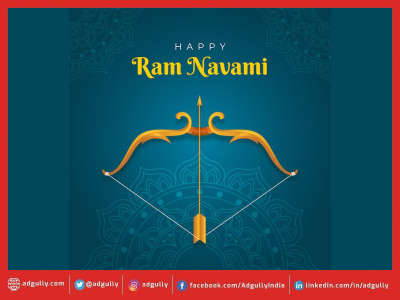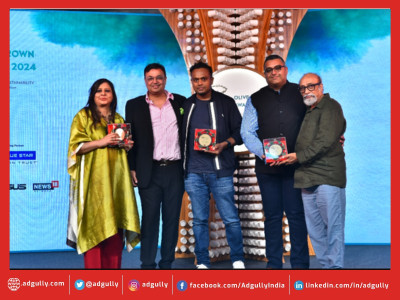News reporting amid COVID-19 times: How our #NewsWarriors are battling it out
They are present at every place where some or the other developments are unfolding, with masks covering their faces, mikes in their gloved hands and often a selfie stick, toiling away day and night. Yes, we are talking about the news reporters from myriad channels reporting from the field, reporting from their homes and the news studios. When people praise and thank the #CoronaWarriors, news reporters are seldom mentioned. But they, too, have been out there, reporting from hot zones, hospitals, quarantine shelters, government offices, villages and following the entire migrant worker tragedy unfolding across the country.
News reporters are the ones who have been keeping people informed and updated on the latest developments, they have been analysing and explaining to the viewers what the current crisis means to them and how they will be impacted over the long term. They have been simplifying the Government directives for the general public.
And yet they are also among the most vulnerable in the news media business – with the peril of getting infected all pervasive and also facing a possibility of pay cuts and even getting the pink slip. Such is the environment in which our #NewsWarriors battle it out on all fronts.
Some lose this battle, like Agra-based senior journalist Pankaj Kulshrestha, who succumbed to COVID-19 earlier this month, and Indian-American journalist Brahm Kanchibotla, who passed away in New York due to COVID-19 in April this year, among the over 3.2 lakh fatalities due to the virus globally so far – and unfortunately counting.
Reporting from Ground Zero
In April, 53 journalists in Mumbai tested positive for COVID-19, following which a massive screening exercise was undertaken among the #NewsWarriors in Mumbai as well as Delhi. However, prior to this exercise, the precautions taken were not adequate. As alleged by a senior editor with a well-known publication, who did not wish to be named, “Before the COVID-19 cases shot up manifold in the country, the publications were not taking adequate precautions to protect their journalists. Only after a number of journalists started getting infected in Mumbai are we see some changes happening. However, there is a diktat now not to give any inputs regarding the current situation around COVID-19.”
Ila Kirti, Chief Reporter, Navbharat Times, too, agreed that everybody is prone to danger in the present situation. “As precaution is better than cure, during such a crisis we must break the chain as even if one person gets infected, the whole family suffers. The lives of the reporters has become similar to that of the doctors, policemen, and the workers as we all are exposed to many threats in the course of our duty. Despite taking several safety measures, we just can’t ensure our complete safety from this deadly pandemic,” she said.
Siddhartha Dutta, Principal Correspondent, The Times of India, believes that the current situation is like a war zone. At the same time he felt that journalists don’t get the credit that they deserve. “We, too, are like the district administration or health workers and are working hard to get information to the people in these times. We work round the clock and are the link between people and the administration. We try to give people the information that is needed in these times. I have seen my colleagues, too, working till 2-3 am to ensure that the edition goes on time. Stories keep developing very fast in these situations and we have to keep an eye on them and inform the news desk. Previously, our editions would be done by 12 midnight, but now we work till even 2-3 am. The story has to go under any circumstance and that’s what we believe in.”
Giving a peek into what challenges news reporters face, Kirti admitted, “This situation is indeed very challenging for us reporters, especially with several areas sealed off as Corona hotspots, as we can’t do outdoor shoots and visit many places. We have to give our reports from home and here network connectivity plays a very crucial role. Due to the huge load at present, the network connectivity slows down every now and then, which creates interruptions while reporting. Luckily, I have made good community connections through different Whatsapp groups. Different connections and sources with the readers across the cities have helped me a lot in fetching news and photos easily and coordinate with the people.”
Talking about her Work From Home experience, Kirti said that it has helped her realise that how much technology has advanced today. “Although becoming a reporter is accompanied by various technological innovations, as reporting is totally a digital media, but during this lockdown it has helped me discover other dimensions of technology as there are many applications and features on mobiles and computers that I did not know about, but now I know how they function and how to use them for this field. Now I can conduct many online meetings and organise conferences with different communities across different states and cities and even strengthen my sources for good.”
Self care is the name of the game, as Dutta said that the reporters are being careful about their exposure to the virus, hence field reporting from their end has gone down and they were taking inputs mostly via phone. “However, in issues related to migrant workers, etc., we have to go out on the field and report it. We have to keep an eye on their movement while being on the field. Earlier, we were allowed to enter Government buildings. Now we have to take special permission for that and mostly aren’t allowed. Most of the government office staff aren’t available at the offices now. Only those officials whose services are urgent are allowed to report to office. These officials are themselves extremely busy in these times and they can’t entertain us all the time. So, getting inputs is difficult. We still have deadlines to meet and information has to be reported on a daily basis. Most of the information is via phone or messaging apps. We go out only if it is absolutely needed. Our work pressure has doubled in these circumstances due to the sheer shortage of mobility and the channels to derive info.”
Speaking about the protocols given by his organisation, Dutta said, “We have a standing instruction from our office to not go out until absolutely necessary. We have been asked to wear masks and gloves at all times when we are on the field. We maintain social distancing even while talking to people and taking interviews.”
On how he copes with the various pressures and maintain positivity, Dutta said, “I personally try to stick to my workout plan and try and stay fit in these times. I try to keep aside some time for myself from my busy schedule. As far as families are concerned, my family is from Assam and there aren’t many cases there so far. So, in that case they aren’t that worried. But definitely they are extremely worried and anxious as I am in a red zone. However, they have come to terms with it because there is no other way. There’s nothing that we can really do except hope that things settle down soon. I have a feeling that people are coming to terms with the situation and the fear psychosis has come down over the last two months. People know that they are in this for the long haul.”
Mental Wellbeing
This disruption in our lives and faced with these uncertain times, the anxiety levels have gone up. With people now being asked to “live with COVID-19 in our midst” as the stringent lockdown restrictions are being lifted in phases, no one is sure how to go about reclaiming some semblance of our lives in the pre-COVID-19 times.
As Mumbai-based psychiatrist Dr Harish Shetty noted that though our #CoronaWarriors are putting up a brave front, deep within there is some fear and also helplessness as the cases and death toll keep increasing, especially in Mumbai.
“For the news reporters, the anxiety levels in their families have increased. This situation has become worse than a war zone, because here the enemy is invisible. Given the nature of their work, some reporters are not being able to take adequate precautions while on the field. I find reporters being careless while reporting from the field,” Dr Shetty added.
Continuing further, he observed, “The fear among reporters this time is higher than the previous disasters. Previous disasters like an earthquake or a fire had a certain romanticism attached to it while reporting. There wasn’t much risk since the disaster has already happened. Now, they are dealing with an ongoing disaster. I see a lot of helplessness in the reporters and their families. The administration has to be more responsible. They need to take all the precautions while reporting.”
Be prudent, not brave
When there is no escaping this crisis, our best defence is to mentally prepare ourselves for the long battle ahead. So what should we do?
As Dr Shetty advised, “The No. 1 aspect to focus on is to take all precautions and be prudent, not brave.”
For the reporters, he advice was, “Work in pairs and share your feelings. You should have debriefings everyday and there needs to be a therapy manager. You shouldn’t run for breaking news in these times as it is risky. Have an eye for news without entering the danger zones. Don’t try to be one above another. You need to have some ‘me time’ everyday and practice yoga or work out to make yourself feel better.”
For the publications, Dr Shetty’s advice was, “Publications need to see that their reporters are eating well and getting adequate rest. Good food is also a mood lifter. All publications should have in-house therapists or counsellors to address the various issues of the reporters and their families. Salaries shouldn’t be cut and be paid on time and all the resources needed for work should be provided.”



















Share
Facebook
YouTube
Tweet
Twitter
LinkedIn